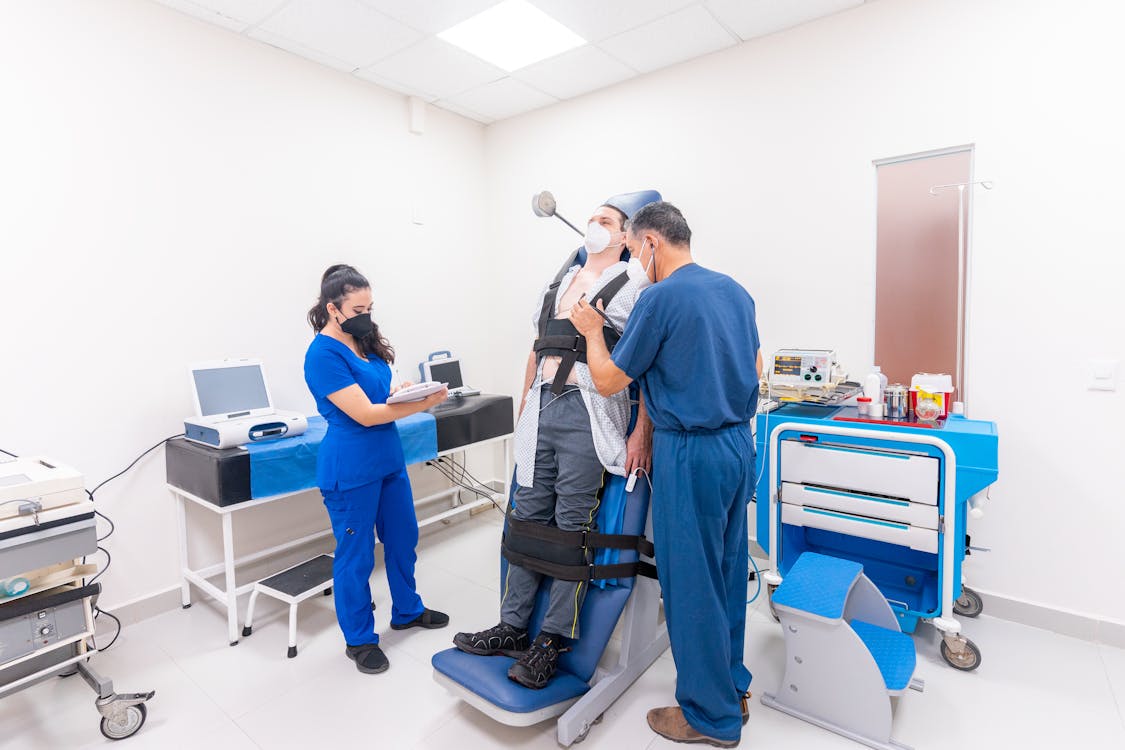Nutrition in Sports Medicine

Table of Contents
When it comes to sports medicine, one of the key cornerstones that can significantly impact an athlete’s performance, recovery, and overall success is nutrition. Imagine your body as a high-performance machine – it requires the right kind of fuel to function optimally. In this article, we’ll dive into the profound impact of a balanced diet on promoting recovery, enhancing endurance, and achieving sports goals.
Understanding the Importance of Balanced Nutrition
A balanced diet isn’t just about consuming the right amount of calories; it’s about providing your body with a wide spectrum of nutrients that cater to its specific needs. Carbohydrates, proteins, fats, vitamins, and minerals – each has a crucial role to play in an athlete’s journey. For example, carbohydrates are your body’s primary energy source, while proteins aid in muscle repair and growth.
In the realm of athletic excellence, the notion of a balanced diet takes on a profound meaning that goes beyond mere calorie counting. It’s about fueling the body with a diverse array of nutrients, tailored to meet its distinct demands. Carbohydrates, proteins, fats, vitamins, and minerals – each nutrient in this nutritional symphony plays a pivotal role in shaping an athlete’s journey toward peak performance and holistic well-being.
Promoting Swift Recovery
The demands of sports can put strain on an athlete’s body, leading to micro-tears in muscles and depletion of energy stores. Proper nutrition plays a pivotal role in post-workout recovery. Nutrient-dense foods rich in proteins and antioxidants can expedite muscle repair and reduce inflammation. Incorporating whole foods, like lean meats, fruits, and vegetables, can supply the body with the essential building blocks needed for efficient recovery.
Intense physical activity places significant stress on muscles, often leading to microscopic tears in muscle fibers. Additionally, energy stores in the form of glycogen are depleted during exercise. This dual impact requires a comprehensive approach to recovery, addressing both muscle repair and energy restoration.
Protein, often hailed as the building block of muscles, plays a pivotal role in post-workout recovery. Consumption of high-quality protein sources, such as lean meats, poultry, fish, and plant-based alternatives like legumes and tofu, provides the amino acids necessary for rebuilding and repairing muscle tissue.
Enhancing Endurance: A Nutritional Edge
Endurance is the ability to sustain prolonged physical activity, and nutrition is a game-changer here. Foods rich in complex carbohydrates, such as whole grains and starchy vegetables, serve as the body’s sustained energy source. These carbs are like slow-burning fuel, providing athletes with the stamina needed to endure longer training sessions and competitive events.
Fueling endurance demands a precise nutritional blueprint, and complex carbohydrates emerge as the cornerstone of this strategy. Foods rich in complex carbs, including whole grains, legumes, and starchy vegetables, unveil a treasure trove of benefits for athletes aiming to conquer extended physical feats.
Complex carbohydrates, often referred to as nature’s slow-burning fuel, hold the unique ability to release energy gradually over an extended period. This steady energy release equips athletes with the staying power required to endure grueling training sessions and demanding competitions without experiencing the energy crashes associated with quick-fix foods. At the core of complex carbohydrate utilization lies the concept of glycogen storage. During digestion, these carbs are broken down into glucose, which is stored in the muscles and liver as glycogen. When the body engages in prolonged physical activity, it draws upon these glycogen stores, converting them back into glucose to fuel the muscles and sustain endurance efforts.
Also Read : Pharmaceuticals and Health Management
Achieving Sports Goals: The Role of Nutrition
Whether you’re an aspiring athlete or a seasoned professional, setting and achieving sports goals is a top priority. A balanced diet can be your secret weapon in this journey. Adequate protein intake aids in muscle development, allowing you to enhance your strength and agility. Additionally, maintaining proper hydration and electrolyte balance ensures peak performance during crucial moments.
For athletes, whether they’re stepping onto the field for the first time or standing as seasoned professionals, the pursuit of sports goals stands as a paramount objective. Amidst the rigorous training regimens and the mental discipline required, there’s a silent powerhouse that often goes unnoticed but holds immense potential—nutrition. A well-balanced diet isn’t just a routine, but a secret weapon that can significantly impact your journey toward achieving athletic excellence.
Sports aren’t just about strength; they’re about endurance, finesse, and performance under pressure. Amidst the adrenaline-pumping moments, maintaining optimal hydration levels is non-negotiable. Beyond quenching your thirst, proper hydration preserves your body’s equilibrium, allowing for sustained energy and focus. Coupled with this is the crucial interplay of electrolytes—charged minerals that ensure nerve impulses fire smoothly, muscles contract effectively, and fluid balance is maintained.
Balancing Act: Customizing Nutrition for Individual Needs
Just as every athlete has unique strengths and weaknesses, nutritional requirements can also vary. Factors such as the type of sport, training intensity, body composition, and metabolism must be considered. Consulting a sports nutritionist can help tailor a diet plan that aligns with your goals and enhances your overall performance.
List: Essential Nutrition Tips for Athletes
- Hydration is Key: Proper fluid intake before, during, and after workouts is non-negotiable. Dehydration can impair both physical and mental performance.
- Power of Protein: Incorporate lean protein sources like chicken, fish, and legumes to support muscle repair and growth.
- Carb Loading Wisely: Prioritize complex carbohydrates like quinoa, sweet potatoes, and whole wheat pasta to fuel endurance activities.
- Healthy Fats Matter: Include sources of healthy fats, such as avocados and nuts, to support overall health and energy.
- Vitamins and Minerals: Consume a variety of colorful fruits and vegetables to ensure you’re getting a broad spectrum of essential vitamins and minerals.
Your Nutritional Game Plan
In the realm of sports medicine, the saying “you are what you eat” holds undeniable truth. A balanced diet isn’t just a fuel source; it’s a strategy that can elevate your performance, expedite recovery, and take you closer to achieving your sports goals. From enhancing endurance to boosting muscle repair, the impact of nutrition on your journey is immeasurable. Remember, your body is your most valuable asset – treat it to the nourishment it deserves, and it will repay you with peak performance.








